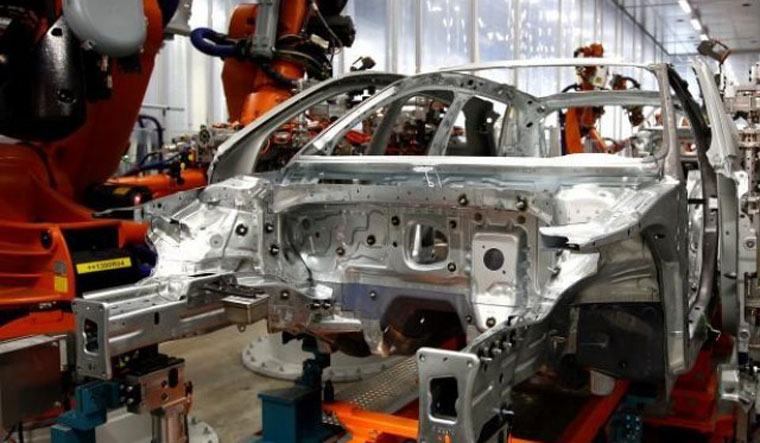The automobile industry is a sector that carries a punch way above its scale. The reason is it being the touchstone against which anything from purchasing power to consumer behaviour to manufacturing sector robustness to raw material availability is gauged. Or, in short, auto sales are an index of the nation's economic well-being.
Going by that, our economy is pretty under the weather. In fact, it is getting sick by the day. Vehicle sales are declining and it is most visible in passenger cars—a sizable 26 per cent fall in the first two months of this financial year. The overall decline is 9.31, with almost all categories, except for some export figures, showing a negative growth.
And, the once-powerful auto lobby suddenly fears the upcoming implementation of BS-VI emission norms. The government has decided that only BS-VI compliant vehicles would be sold from April 1, 2020. This requires investment in new technologies and resultant rise in cost—never a good idea when sales are already down.
In addition, there is the looming threat of electric vehicles. The Modi government has proposed that two-wheelers up to 150cc category should be all electric by 2023, and three-wheelers to be electric by 2025.
This could turn out to be the final straws that broke the camel's back. Can the upcoming budget swoop in and be the auto industry's saviour on a magic carpet?
For the big players in the auto field, the best solution is a GST cut to spur sales. “If demand goes down, collection of taxes also goes down,”argued a Society of Indian Automobile Manufacturers (SIAM) official. However, there were voices of dissent over getting a tax cut, with the likes of Maruti Suzuki chairman R.C.Bhargava arguing that there should not be a cut at the cost of government money going to developmental sectors. While GST rates are not normally dealt with in the budget, the companies are hopeful of some relief.
SIAM's other big demands, as per its list submitted to the authorities, include incentive programme to get old and polluted vehicles off the road (thereby, spurring sales of new vehicles), corporate tax for all companies to be brought down to 25 per cent (this is plausible as the finance minister had mentioned this) and weighted reduction for R&D activities to be reinstated at 200 per cent until the corporate tax reduction to 25 per cent happens.
Auto majors believe the enhanced rural welfare schemes and the direct benefit packages for farmers augurs well for two-wheeler sales, while sops for BS VI or an eventual GST relief, even though it is unlikely along with the budget, could help it in other categories.
Electric vehicles segment is even more gung-ho, thanks to a spate of policy moves and launches finally getting it off the ground, like the GST on battery chargers being reduced. There is a whiff of registration fees for electric vehicles being waived off in the year, while the industry players have also asked for a review on the taxation on raw materials that go into manufacturing electric vehicles.
“In order to boost electric mobility in India, government regulation regarding financing for EVs will be extremely helpful,”said Vineet J. Mehra, managing director of DOT, a patent company that has partnered with electric two-wheeler maker Li-Ions Elektrik. “We also expect the government to bridge the cost of financing and make access of capital easier for the SME and MSME sector to create a robust supply chain for EV manufacturing.”



